Redundant Water Heater - Never be without hot water
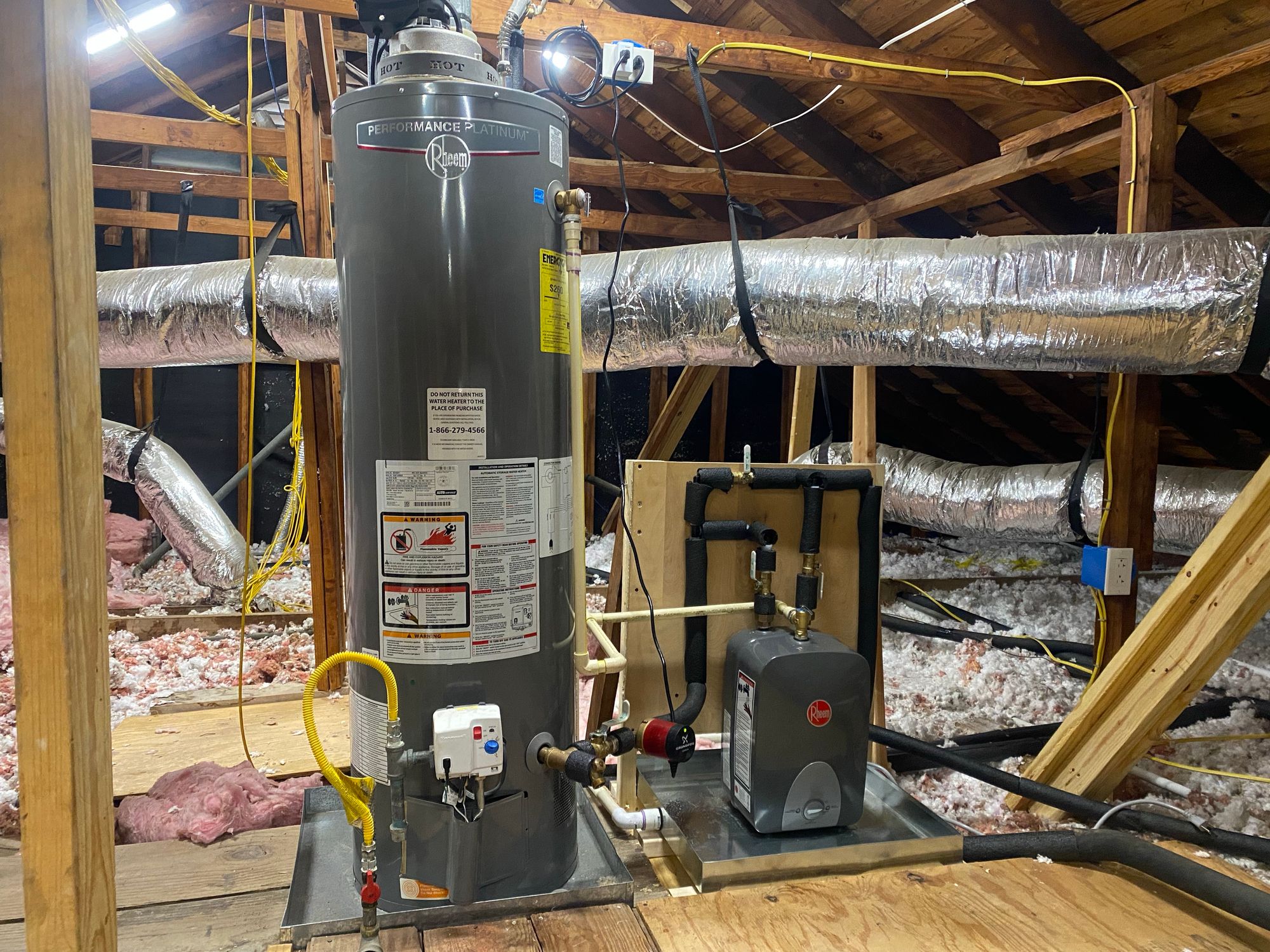
This post details my redundant/backup water heater setup, so I can hopefully never be without hot water, even in the event of a power and natural gas outage.
Hot water is not something I ever really thought about. I have a newish (3 years) water heater with a 12 year warranty, and its out of sight out of mind. But then the flame sensor went bad a few months ago. I was able to limp along by constantly restarting the water heater, and I got parts in the mail from the manufacturer a few days later which fixed the problem. But that experience highlighted just how much I rely on hot water and if the heater fails, I'm stuck!
I did what any sane person would do and spent the $55 to get the same parts they sent to have it on hand (The Pilot Assembly), but then I did what no sane person would do and started to look at how I can have redundant water heaters.
I wanted something small, cheap and something that runs on a different fuel, in case the natural gas goes out. What I ended up choosing was a 2.5 Gallon Point of use 1500w Electric water heater that is really designed to be installed under a sink. I couldn't find much, if anything about anyone using something this small as a backup water heater, but I was sure it would work after doing some math, and realizing that I'm happy with lower performance in an emergency.
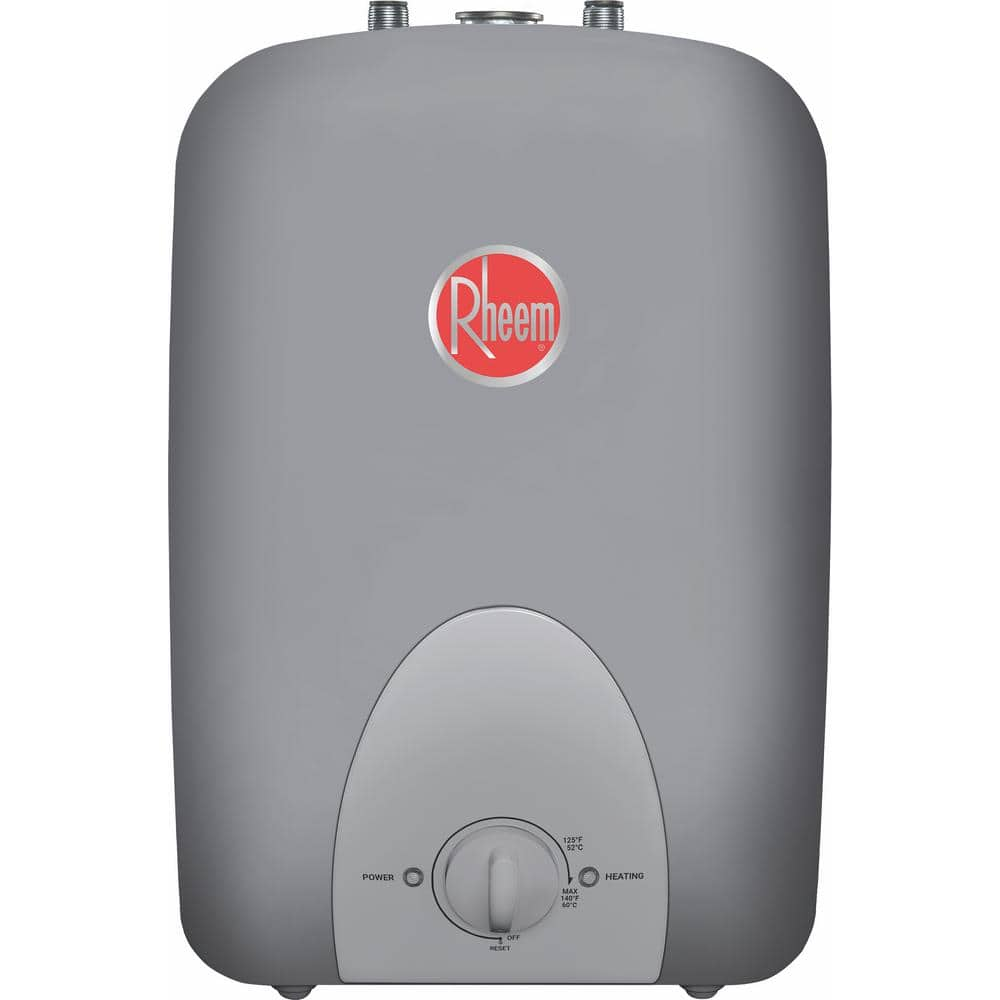
Here are some pictures before install
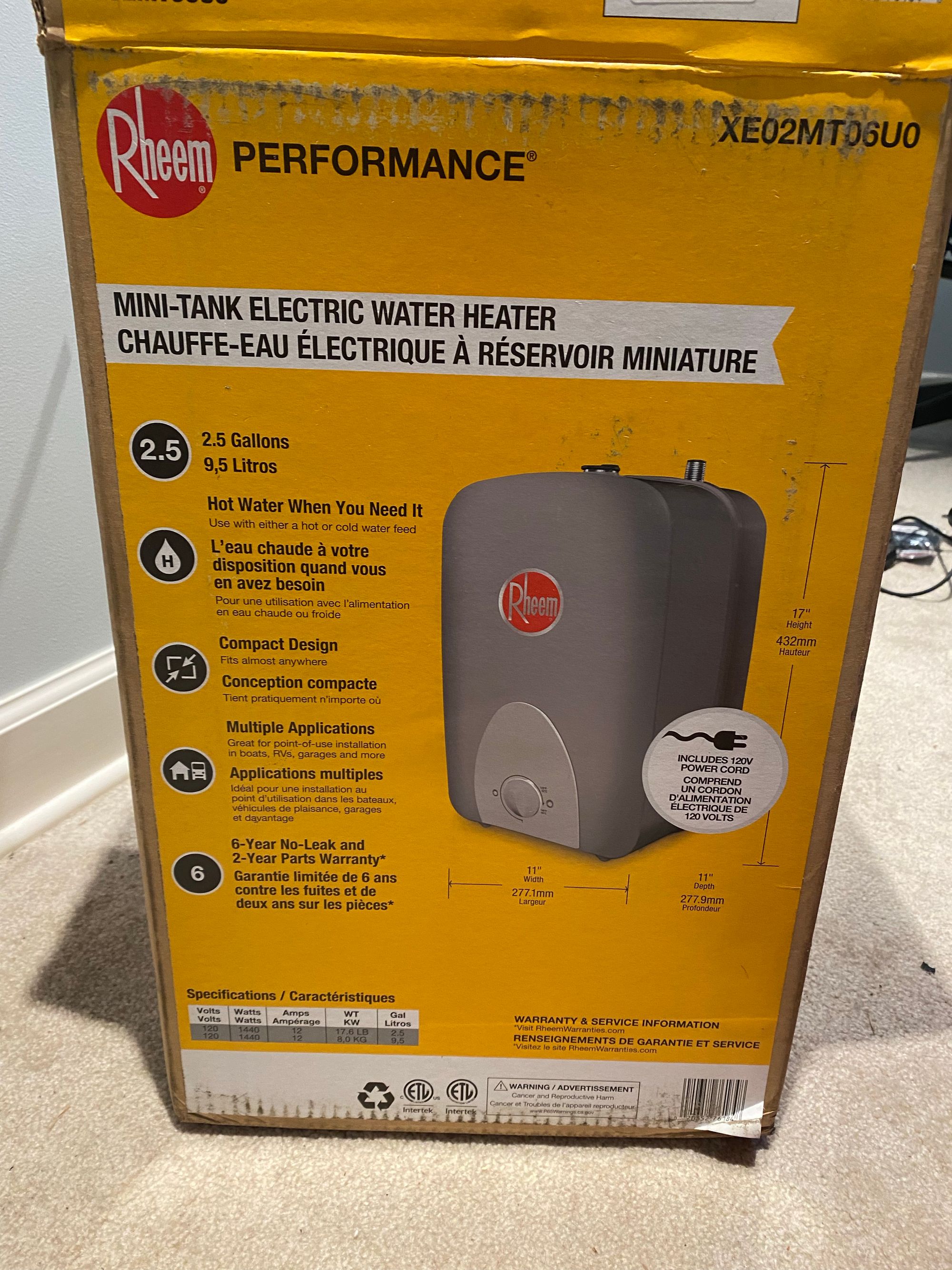
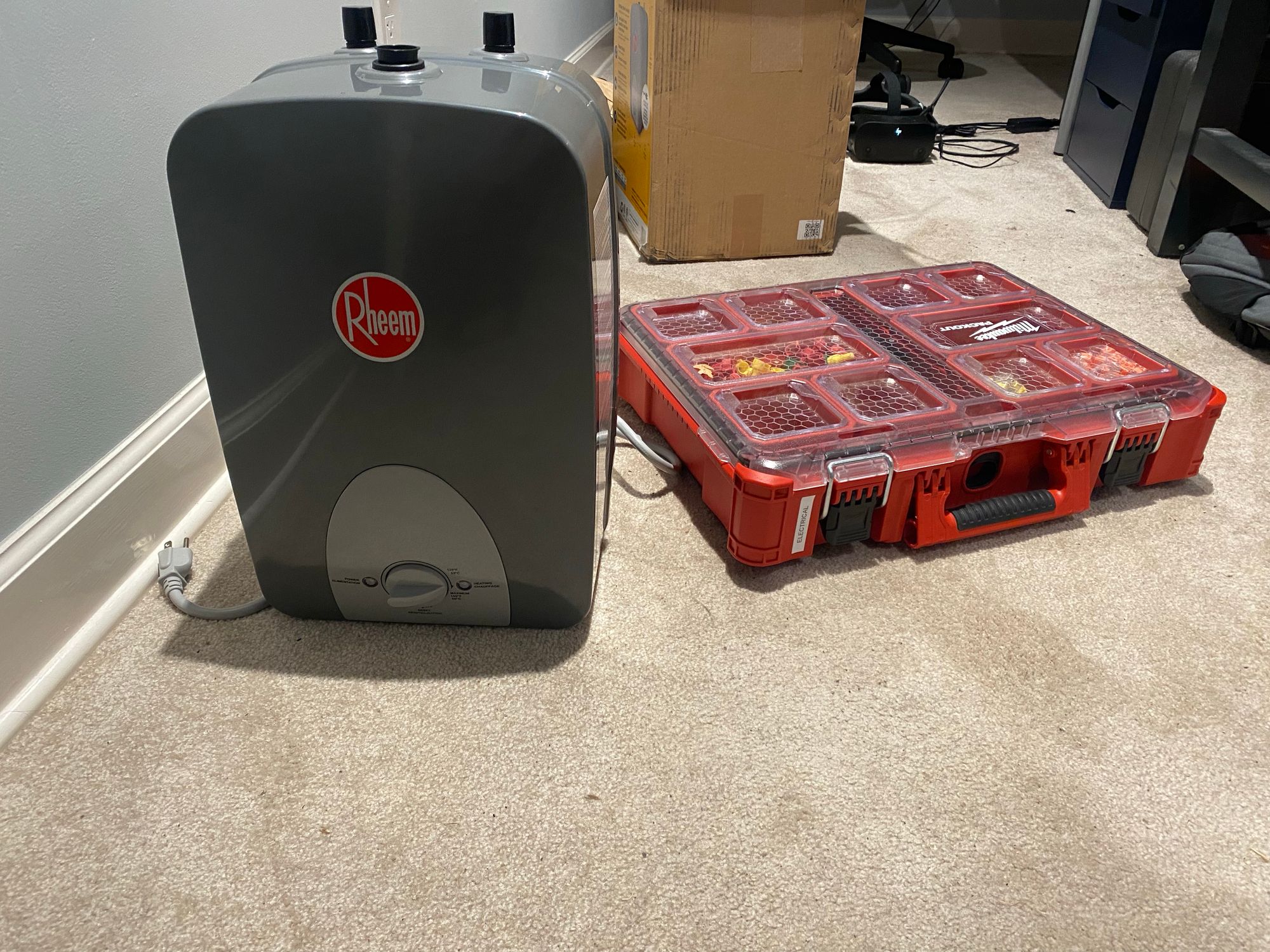
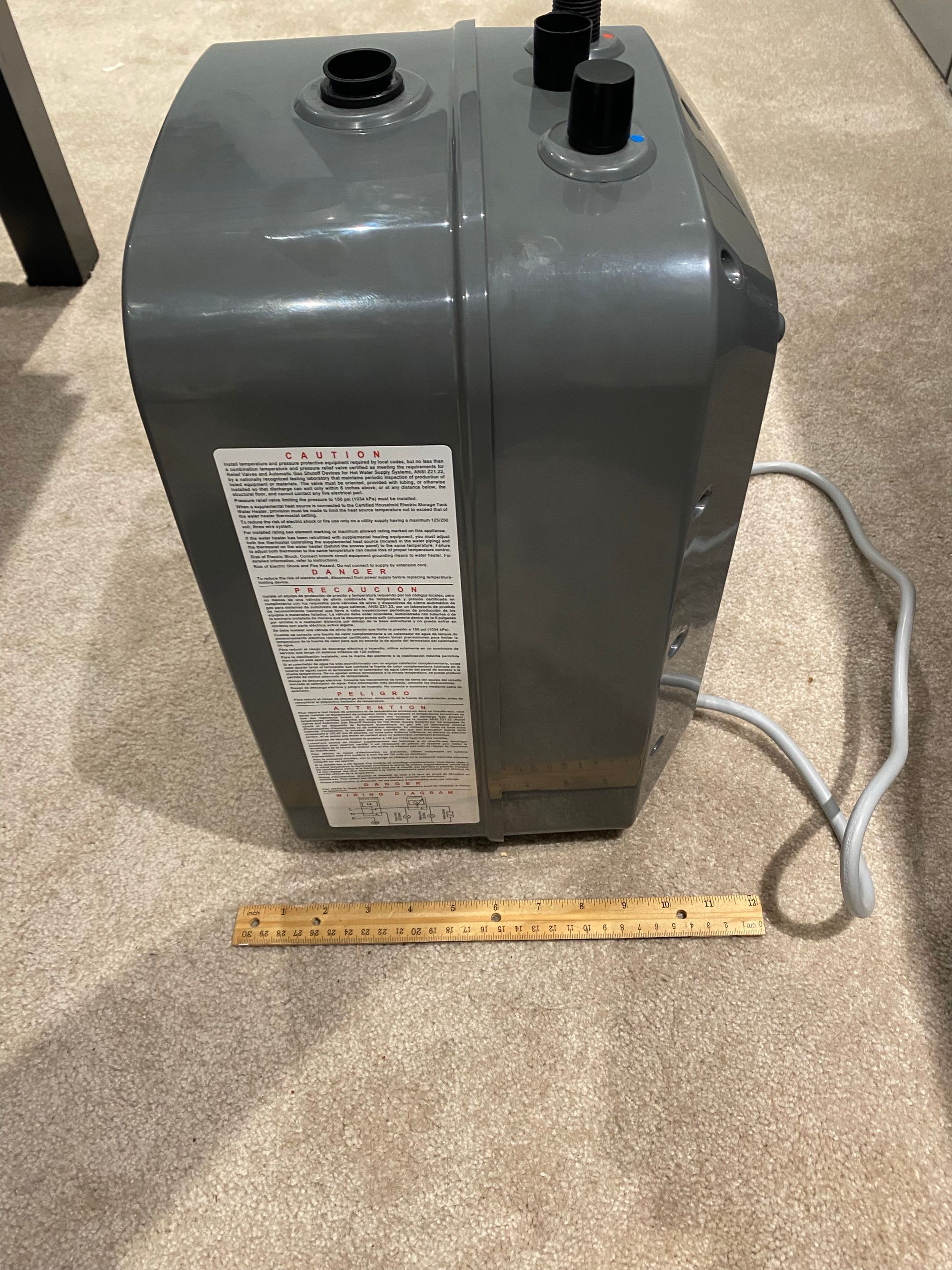
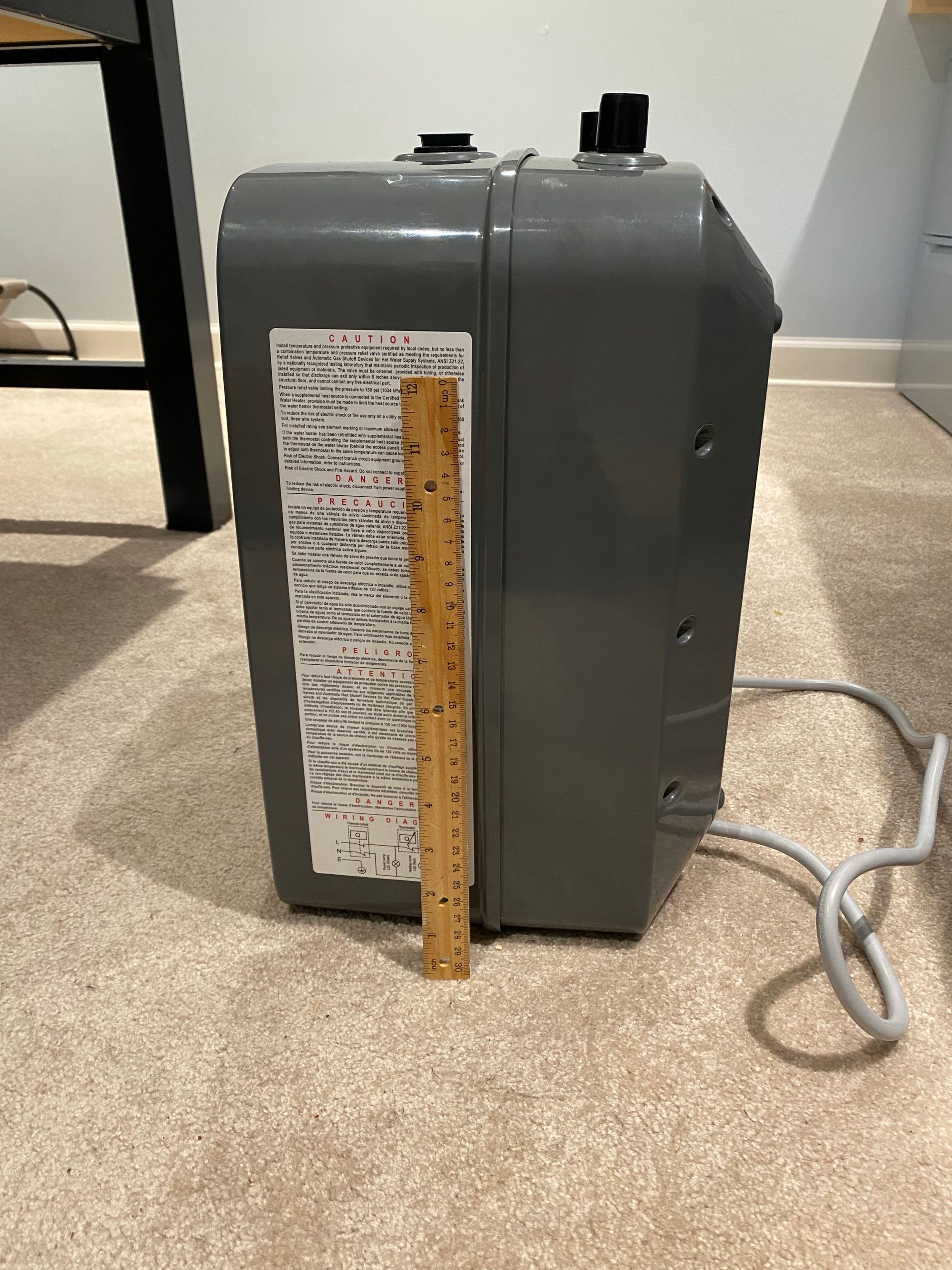
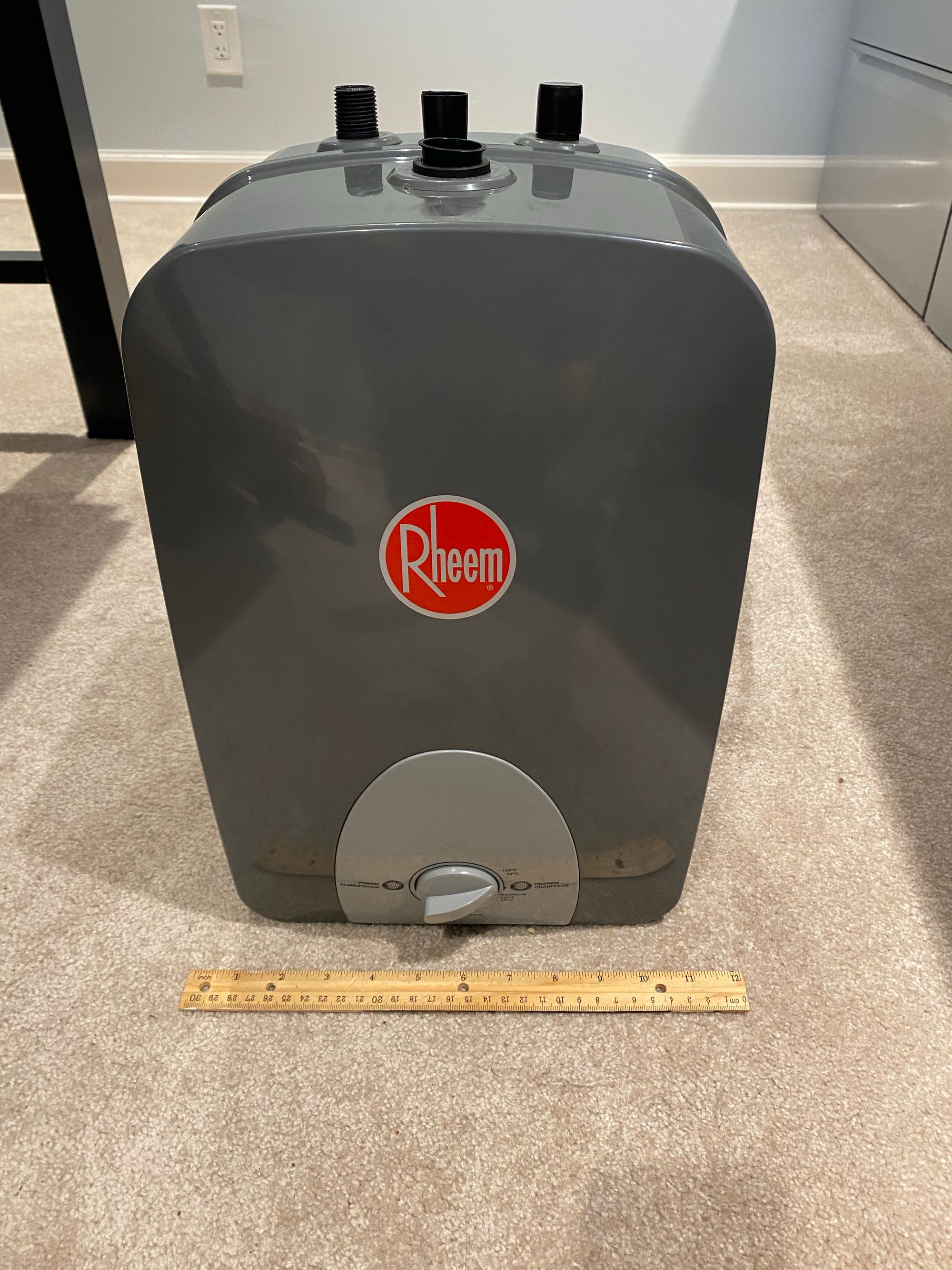
Next I had to figure out how I wanted to get it all installed. Since I have a recirculation pump it makes it easy, I decided to just put it inline with the recirculation pump so that water would always flow through it and eliminate the problem of stagnant water.
If you don't have a recirculation pump, its a must have. It means you get instant hot water throughout the house, no more waiting for the water to get hot. But, insulating the lines well is a must!
I drew out what I wanted on my whiteboard, and decided I should add shutoffs before and after the backup water heater, as well as a bypass line if I ever have a problem with it


I got it all plumbed in, and it came out better than I expected. I built a little platform out of scrap wood for the pipes and water heater to get mounted to.
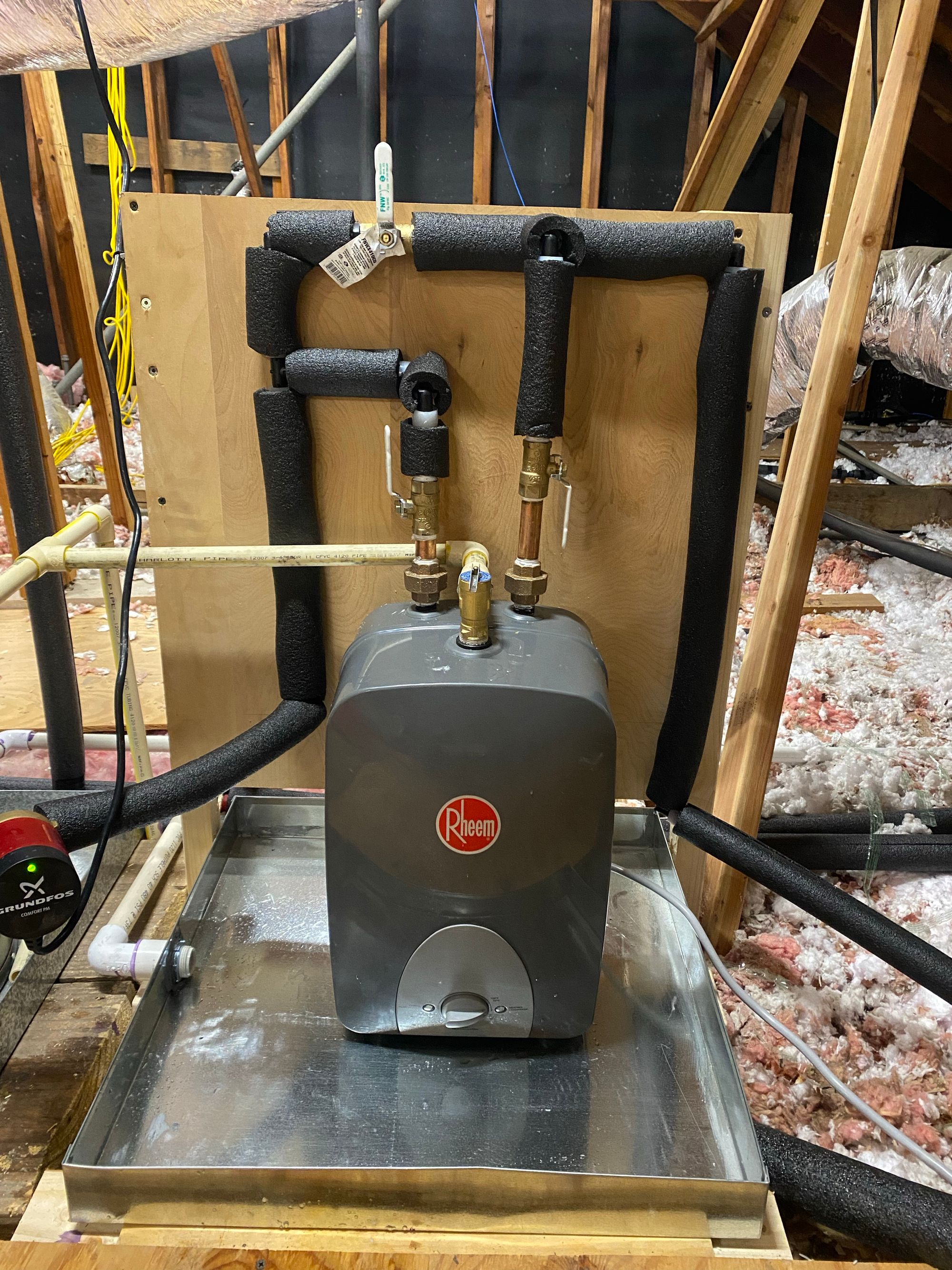
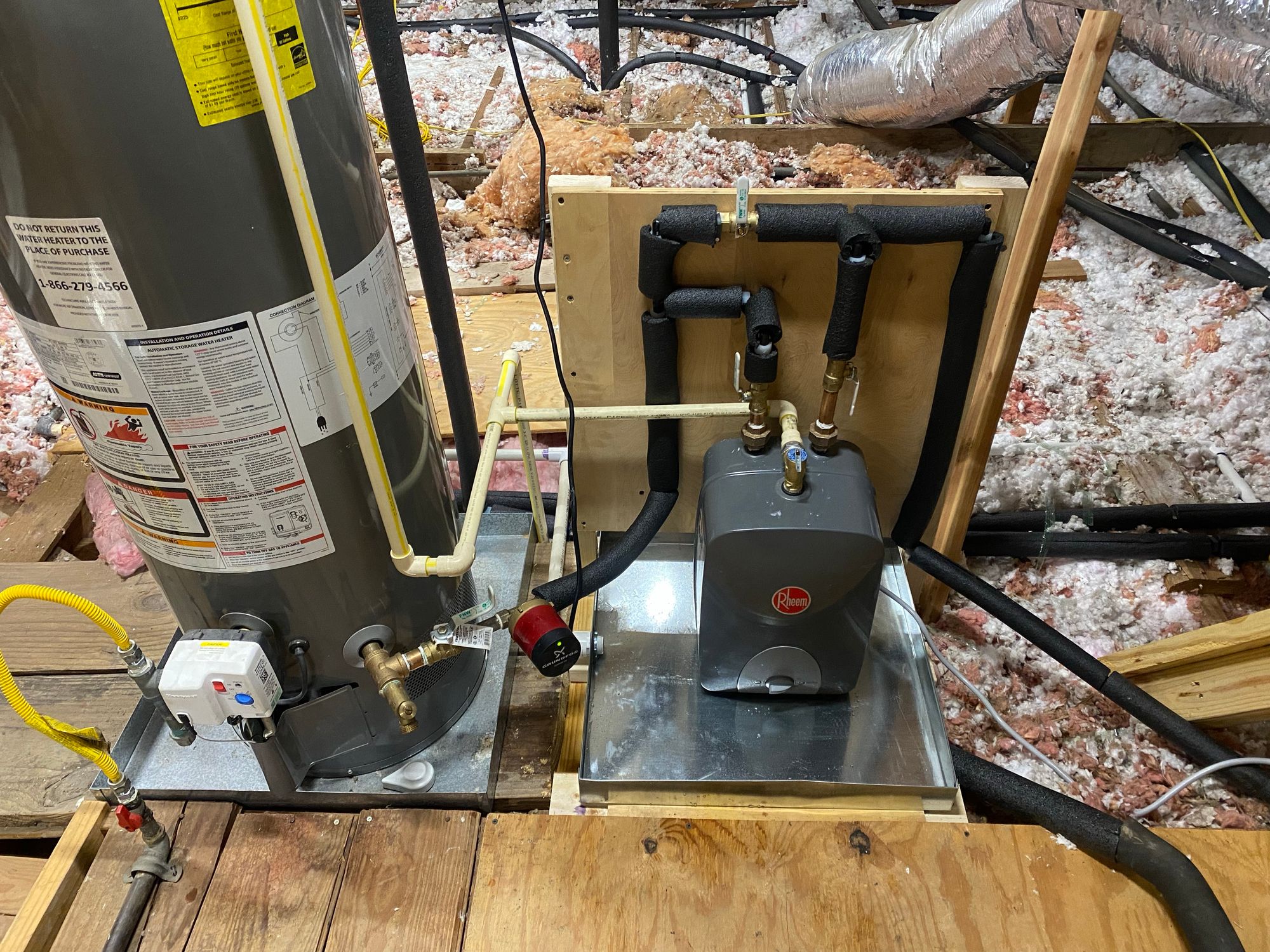
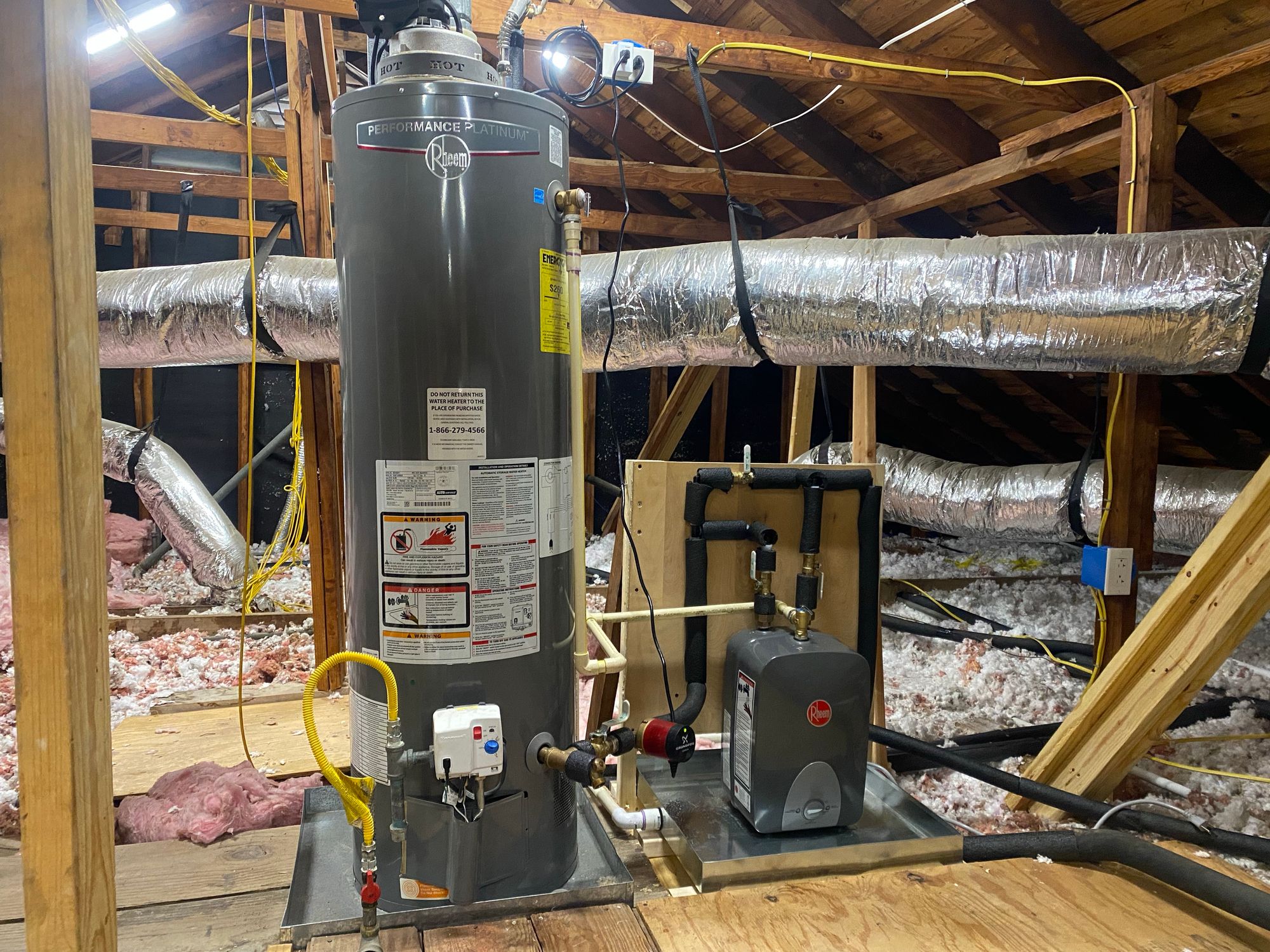
Now its installed, you can kind of see how it works. If the main hot water heater is off or has failed, as long as the recirculation pump is on, and I turn the backup water heater on, it will heat the entire loop of water including all the water in the main tank. Not just the 2.5 Gallons. Usually this heater will be turned off, but water will always flow through it because of the recirculation pump. Will it take a long time to initially heat? Yes. But this is fine for an emergency. As long as I can shower and do normal daily activities with hot water, I will be happy.
I chose this small heater because it was cheap, small and draws just 1440w. This means that even if the power AND natural gas goes out, I can power it via a portable generator and still have hot water. Now I just needed to test it and see if my plan would actually work, multiple people told me it was nowhere near powerful enough, but I disagree. There are 50 gallons electric hot water heaters that draw 4500w that people use all the time, that is less than 3 times more powerful than this. If I have to wait 3 times as long for hot water, that's fine.
So, one day I turned off the main heater (So both are off at this point) and used enough water so that it was just slightly warm. It went from "warmish" to 140 degrees in 2 hours and 2 mins. Then I went for a shave with hot water and a shower, my normal shower at normal temp.
It kicked back on 1 min and 50 seconds later while I was still in the shower (Per power monitoring). I did NOT notice a temperature difference during the entire shower. I got out, dried off, put on socks and slippers and ran into the attic and the heating light was off! It had already recovered. Looking at power monitoring I just missed it by a few seconds.
My shower was 14 mins long from when I entered the bathroom to running into the attic. So this means me and my wife could have back to back showers, which is by far the most hot water intensive thing that I do in the house with no problem Perfect result.
I noticed that I was losing a bit of heat through the exposed pipes, so I beefed up the insulation
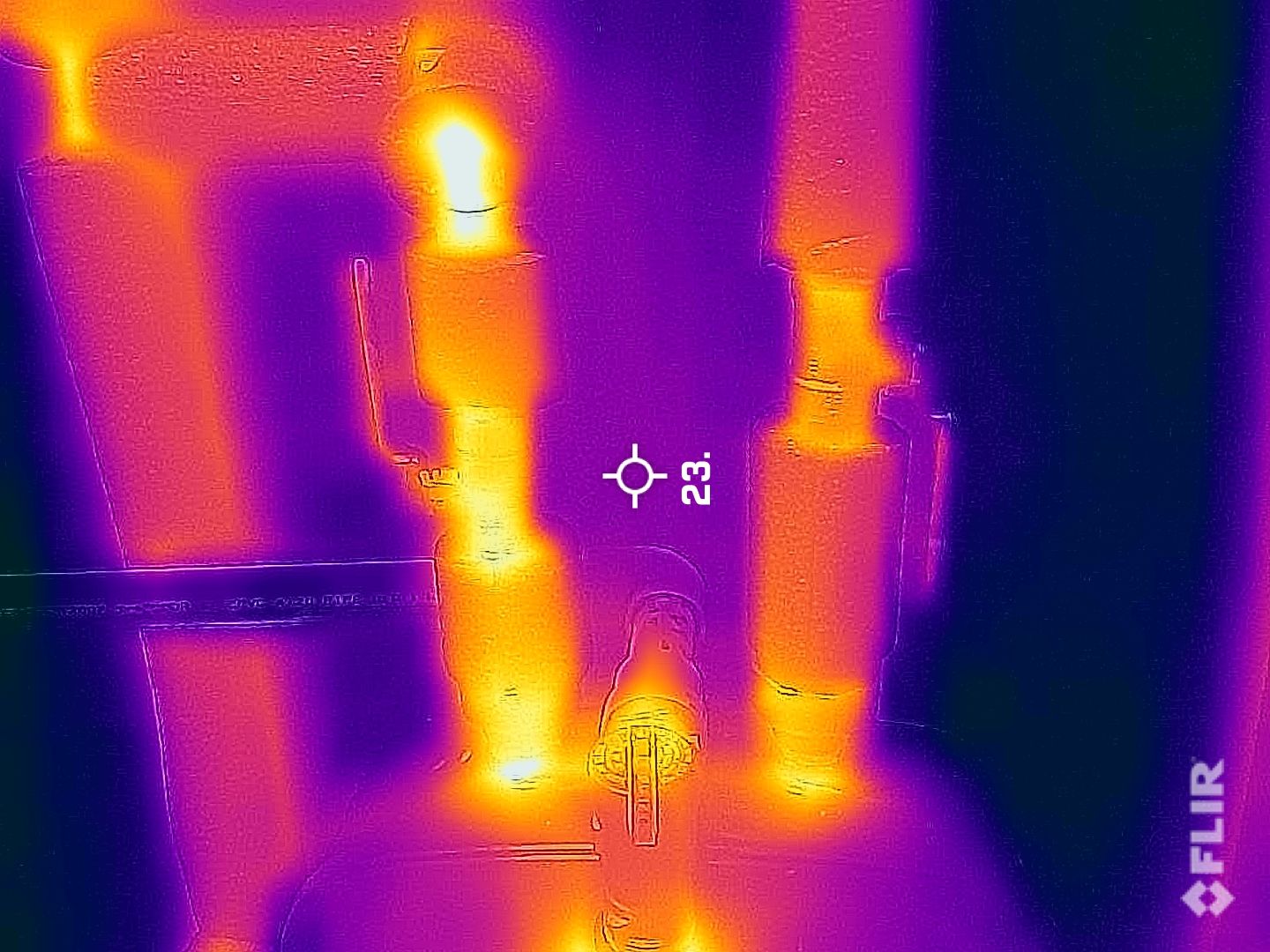
Here is my improvements
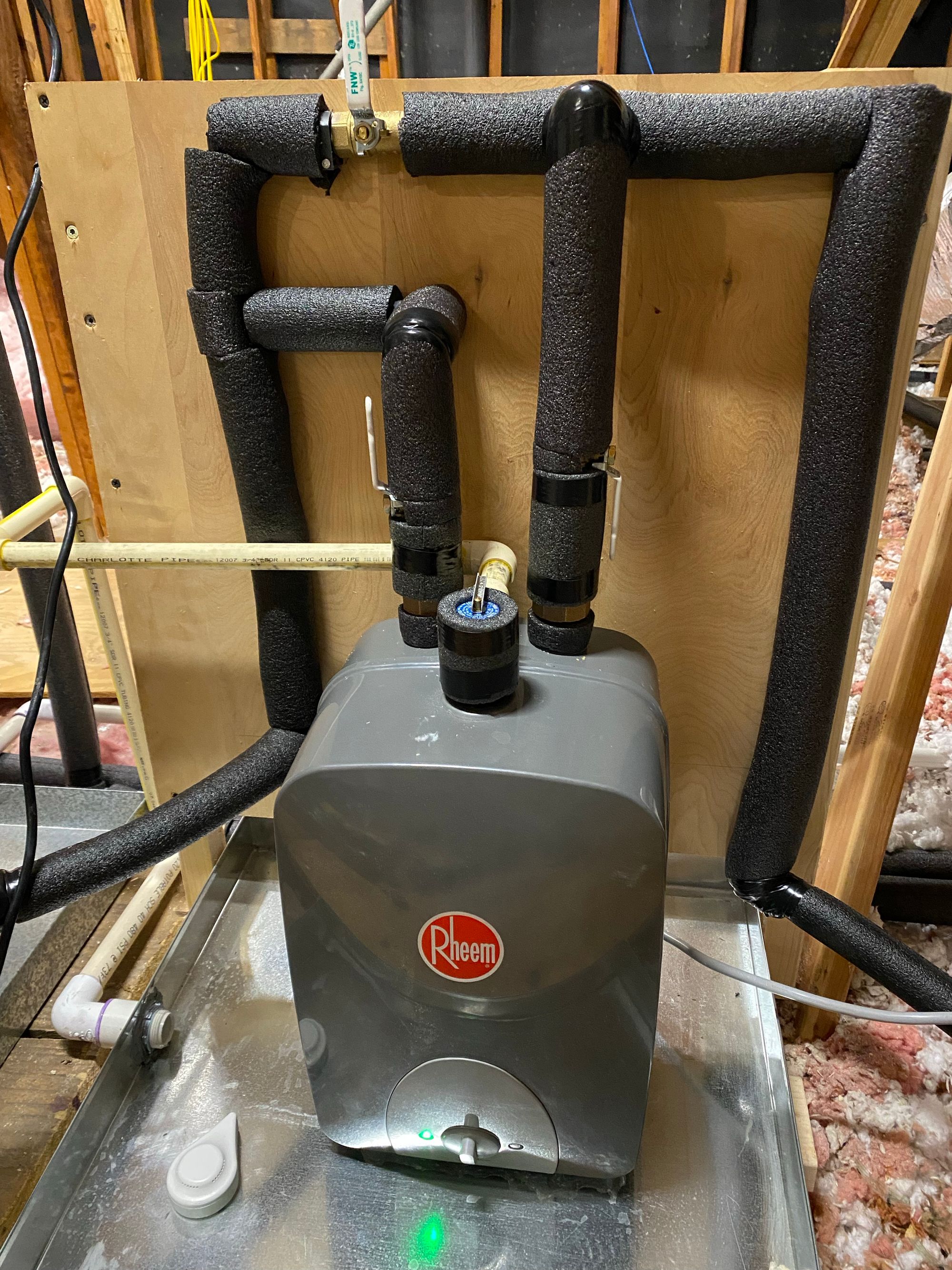
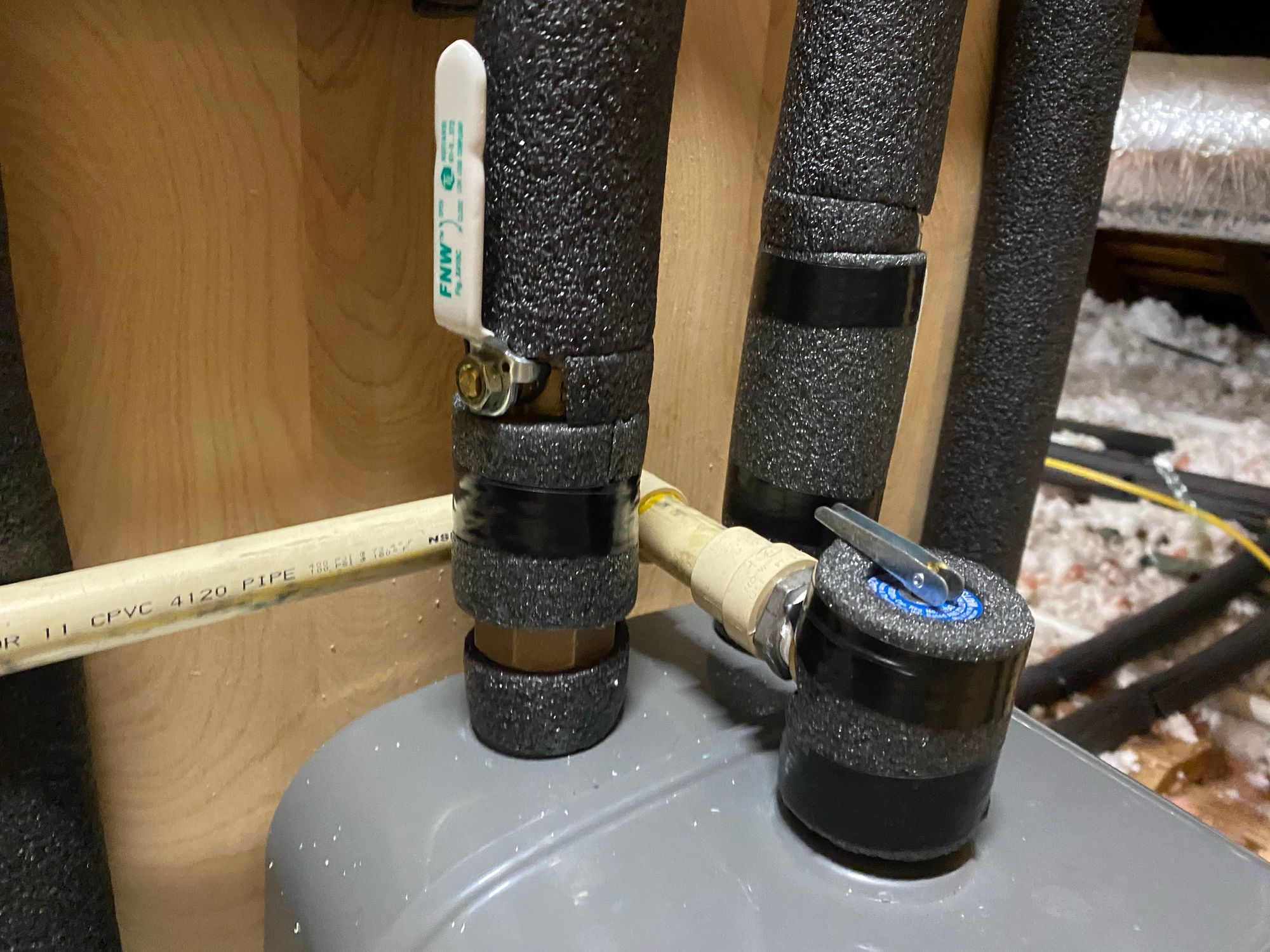
Even with insulation though, you can tell you are still losing heat. Over the next few months I'm really going to beef this insulation up
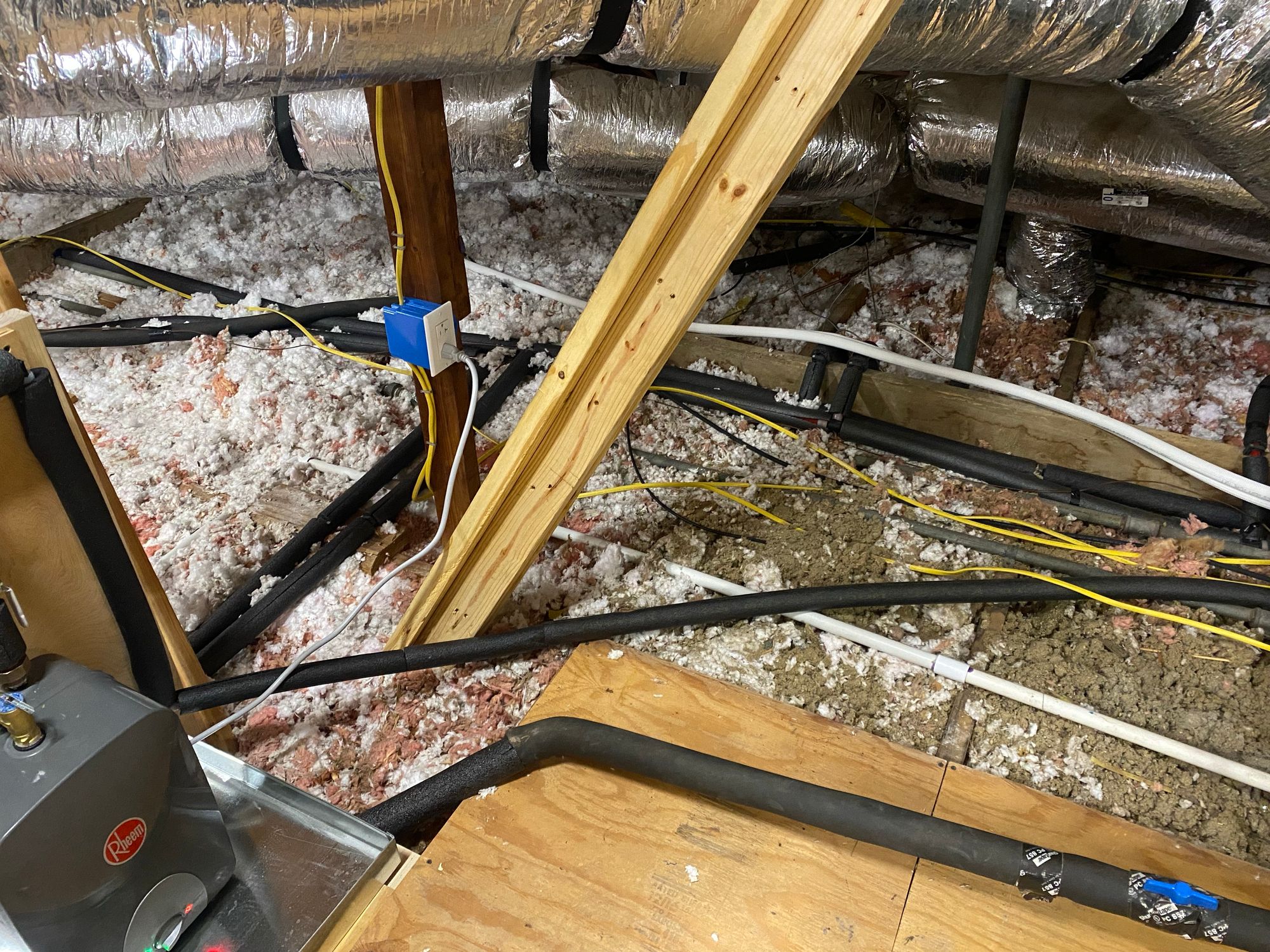
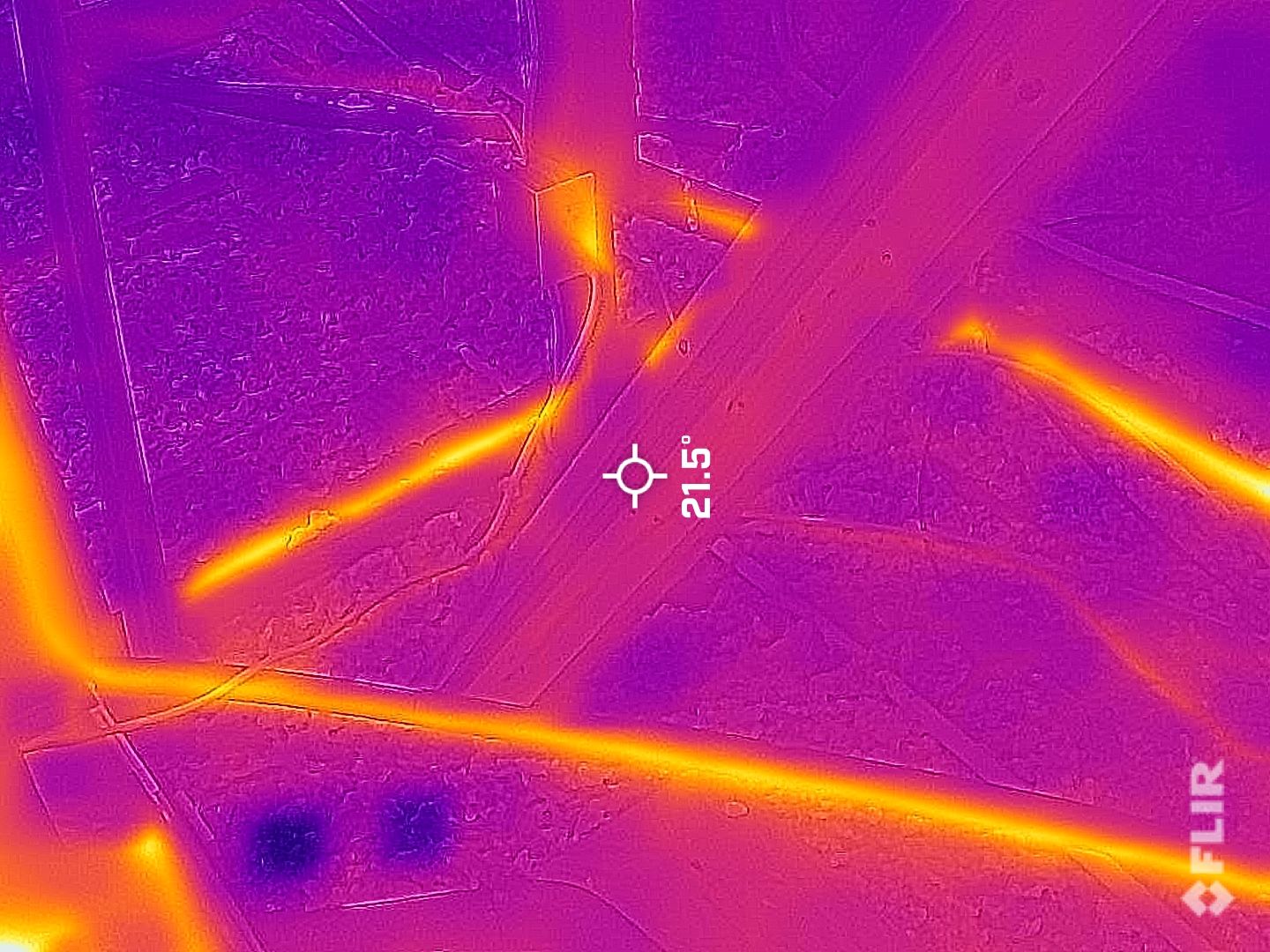
Overall this was a great install. It was cheap, compact and does exactly what I wanted.
It does leave some room to be improved. If my main heater leaked, then this would not solve the problem. I could add some more plumbing to exclude the main water heater with valves, but I'm not sure how much that would gain me. The odds of a disaster AND the heater leaking are low. Since it will probably fail on a normal day, I would just go buy a new one and put it in myself, it wouldn't be hard. So I'm pleased with this solution.
Hope this was worth the read!